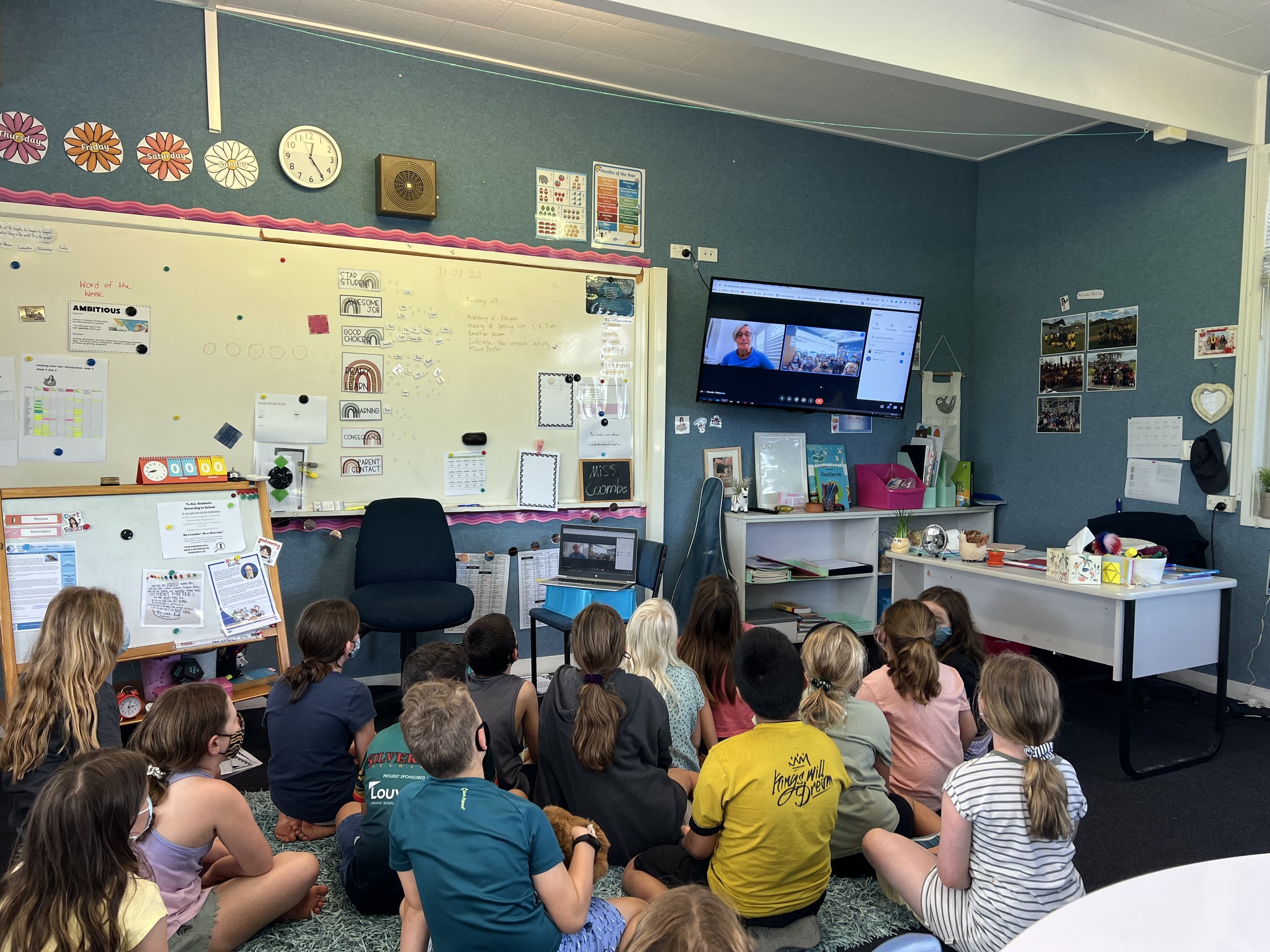Taking the farm to the classroom
This article first appeared online in the King Country News on 14 November 2022.
CHILDREN from Orewa Beach School during a Zoom session with Aria farmer Wendy Coup.
An educational programme is looking to pair city schools with farmers who can teach students about the industry.
FARMERS are returning to the classroom in a new educational programme – but not as the students.
This year farmers from around the country began beaming into primary school classrooms for video calls once a fortnight as part of the Beef + Lamb New Zealand-driven Farmer Time initiative.
Among them was Aria sheep and beef farmer Wendy Coup.
She was linked up with teacher Rebecca Coombe from Orewa Beach School to deliver five 30-minute sessions via Zoom in the first term of this school year.“We worked out pretty quickly that it would be something that would benefit New Zealand as a whole,” she says.
VIRTUAL TOURS
Students got virtual tours of her farm, sent a bag of wool and were invited to share their observations about how their lives were similar or different to Wendy’s.
“We don’t have an internet connection on the farm and we have patchy cell reception,” Wendy said.
“So my thinking was, if I’m going to bring the farm to them, I’m going to have to prepare ahead of time.”
Wendy started with an introductory session where she focused on three questions: what do you know, what do you see and what do you wonder?
“I can tell them what I see but I’ve got adult eyes that have been farming for a long time. These are children who have maybe never had this experience.
“I wanted to understand what their experience of what they were seeing was.”
Wendy said each time she was dialed into the class she would see students sitting with wide eyes “like little possums” waiting to see what they would learn that day.
EXPERIENCE
She said the children looked at a photo of her house and noted how “beautiful” it was and how much land there was to run around on.
“To me that’s what we were trying to do. We were trying to get them to have some kind of experience, even though it’s virtual.
“Getting them to share how they related to it was really important to me.”
Students learned the difference between pet dogs and working dogs when Wendy showed them how her dogs were more like her employees.
“They’re like a friend and a workmate, whereas their experience of dogs was probably that they live in the house and they sit on your lap.”
They got to see videos of the dogs working, with one very noisy and the other not, and photos of how they were housed.
Wendy said she wanted to give the students an accurate, and age-appropriate, understanding of farming, which meant she didn’t shy away from some of the more uncomfortable topics.
SMELL OF A FARM
A few weeks into the programme, Wendy sent a bag of wool to Auckland that had been harvested in the woolshed.
She asked Rebecca not to open it until their next session because she wanted the students to have the experience of the smell infiltrating the classroom because she thought it would be interesting.
“Well, it was really interesting. They were all like ‘ew that really stinks.’ They were hilarious.”
Wendy said part of the exercise was making the kids a bit uncomfortable, because that was the reality of farm work.
“Even just the smell of wool. This afternoon we’re going docking and we’re going to smell. We’re going to have blood on us, we’re going to have shit on us probably, and that’s part of the experience of being a farmer.”
Brianna Stewart


